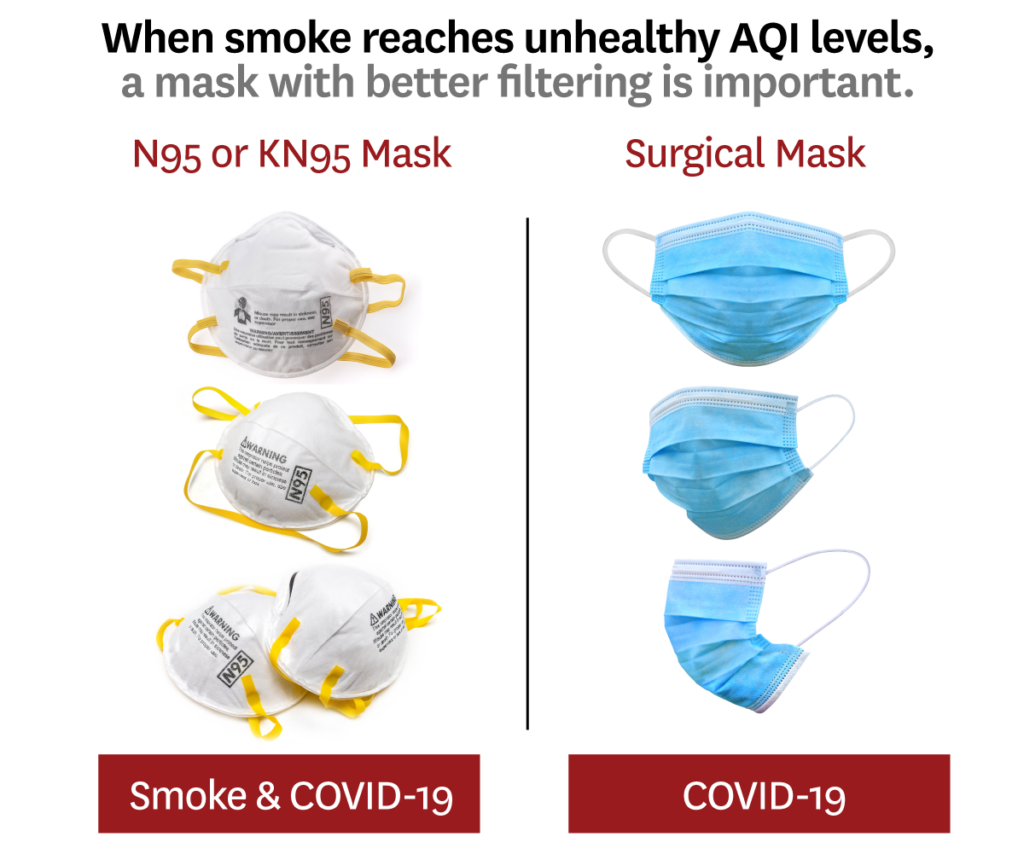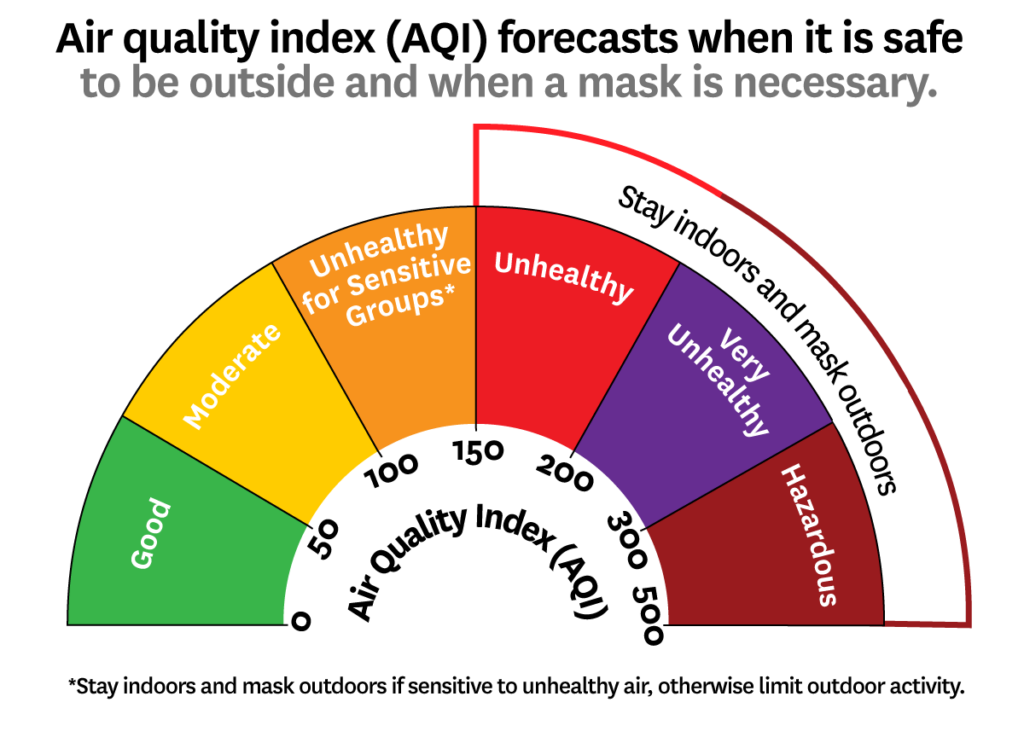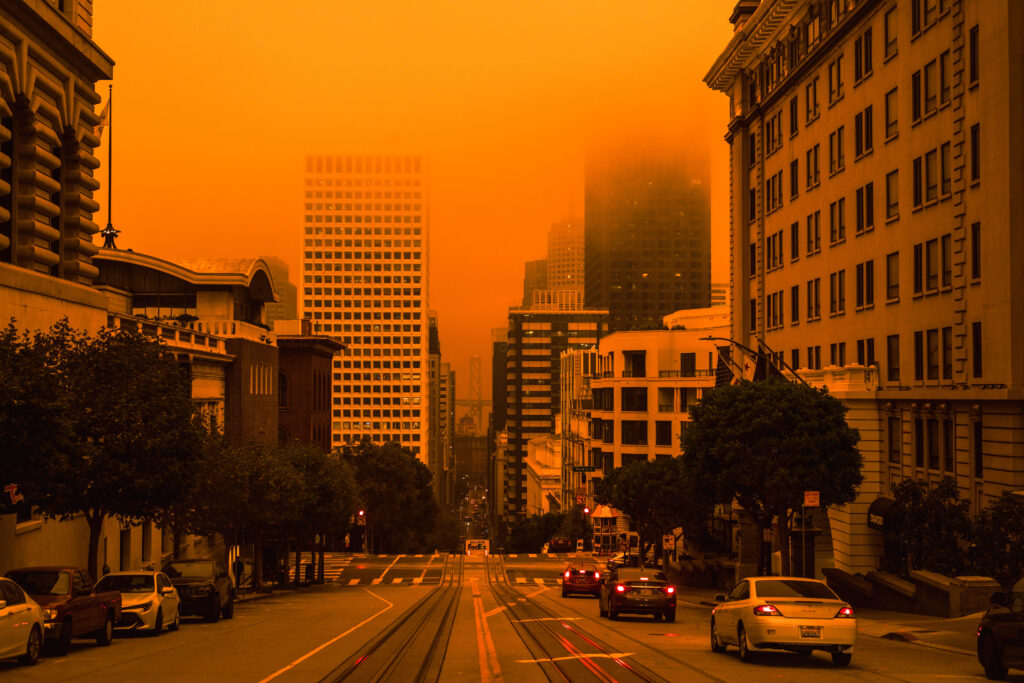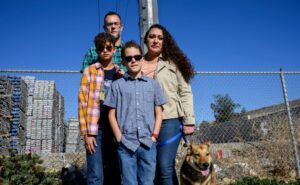It shouldn’t come as a surprise that wildfire smoke is bad for your health. Breathing wildfire smoke can give you a sore throat, headache and fatigue. But breathing in wildfire smoke also puts you at risk for long-term health problems such as asthma, emphysema, bronchitis, and heart disease.
The bad news is that wildfires are getting worse. In past years, fires in California, Oregon, and Washington grew so large that smoke blew across the country. Just this summer, wildfires rolled across Europe after record heat waves and drought while the the American West set nearly 1,000 heat records last week with many states now in extreme fire danger. This trend will continue as the climate changes further.
I recently served on an expert panel for the National Academies of Sciences, on how to protect people from breathing in wildfire smoke, mold, toxic chemicals, and other unhealthy things. I was on the panel to share insights from my work on risk communication. In our report, we recommend that there should be an agency within the US Department of Health and Human Services that helps to protect people from breathing unhealthy air, and provides trusted advice. But that agency does not (yet) exist.
Sign up for Schaeffer Center news
So what can you do to protect yourself from wildfire smoke this fire season? Here are five tips that were taken from California’s Air Resources Board and written in everyday language.
1. Limit outdoor activity, or don’t go outside at all
The best way to avoid breathing wildfire smoke is to stay inside. If you must go outside, avoid activities like running or yardwork. Those outdoor activities make you breathe harder. And that means you are breathing in more wildfire smoke, which is bad for your health.
2. If you do go outside, wear an N95 or KN95 mask – and wear it well
If you have to go outside when the air is filled with wildfire smoke, your best bet is to wear an N95 or KN95 mask. The same N95 or KN95 masks you might have worn to protect against COVID also protect against wildfire smoke.
But make sure that you’re using an N95 or KN95 mask with straps that go over your head. Don’t use the ones with ear loops. The reason is that the masks with the straps will sit more tightly on your face.

An N95 or KN95 mask works best if it fits tightly over your nose and mouth. If the mask moves when you breathe, it means that the fit is good and the mask is working. Unhealthy air should not be able to get in from the top or from the side.
Beards and mustaches create space between your mask and your face, which lets unhealthy air in. So, if you want your mask to protect you, it’s better to shave first.
3. Keep your indoor air clean, or go somewhere else with clean indoor air
To make sure that unhealthy air does not get into your home, keep your doors and windows closed. If you have an air conditioner, run it with a new clean filter. Also make sure that your air conditioner is not taking in any of the unhealthy outdoor air. Set it to “on” instead of “auto” so that it keeps running and filtering your indoor air. It can also help to have a portable air cleaner, and to run it at the highest setting. It is also possible to create your own air filter with a box fan.
Avoid doing anything that lowers your indoor air quality. Don’t burn candles or incense. Don’t use gas stoves. And don’t use the vacuum cleaner. Instead, use a damp cloth or mop to clean up dust.
If you don’t have a way to keep your indoor air clean, find out where the clean air centers are in your local community. This could be a library or school that has air conditioning and that is open to people who want to stay away from the wildfire smoke.
4. Keep an eye on your local air quality
Most Smartphone weather apps show how good or bad the air is in your area. You can also check this Fire and Smoke Map. When the air quality is unhealthy for sensitive groups, people who are sensitive to air pollution should limit their outdoor activities. When the air quality is unhealthy, very unhealthy, or hazardous, everyone should limit their outdoor activities.

5. Be prepared
There are things you can do now to prepare for the next fire season, so that you can continue to breathe well. Make sure that you have enough N95 or KN95 masks for everyone in your family. Put a new filter in your air conditioner now, if you have an air conditioner. Buy a portable air cleaner, if you don’t have one yet. And keep an eye on the air quality. So that for now, you can breathe better.
Wändi Bruine de Bruin is Provost Professor of Public Policy, Psychology, and Behavioral Science. She studies how to improve messages about health and environmental risks. To be as clear as possible, she wrote this blog post at the 7th grade reading level. Messages are easier for everyone to understand if they are written in everyday language.



You must be logged in to post a comment.